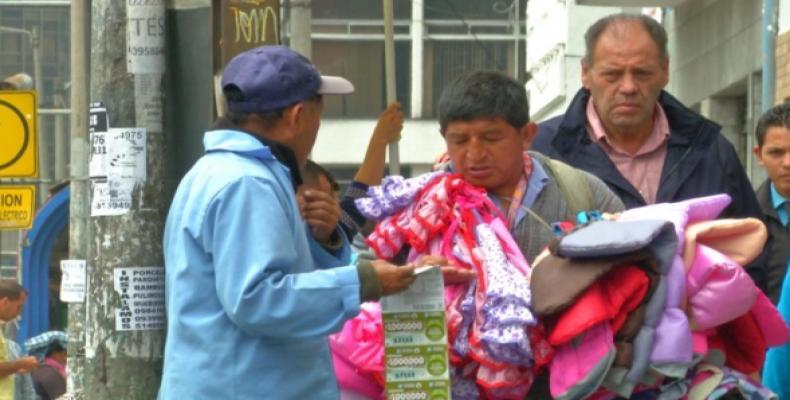Quito, March 18 (teleSUR-RHC) Selling clothes, kitchenware, food and other goods outside Ecuador’s Institute for Social Security (IESS) are a handful of the country’s 3.7 million people working in the informal sector.
While they may be outside the IESS, these workers are not affiliated with the social security system; something the government is seeking to change through reforms to the social security law. Selling sandals on the sidewalk in front of IESS, Washington Alvarez Sanchez is one of these informal workers.
On the possibility of becoming affiliated, Alvarez told teleSUR English, “I think this is very good. I think that it is right for those people who really do not have any benefits, and want to sign up voluntarily.”
Through the voluntary affiliation of this large portion of the population, informal-sector workers would experience greater access to public services, as well as retirement benefits and protection in case of disability and death.
Sandra Elizabeth Sanchez, who spoke with teleSUR English while selling “espumilla” desserts outside the IESS building, also thinks that expanding social security to those in the informal sector is a good thing: “Without social security, you have to wait a month to be seen in hospital. You have to call, and wait a month for them to see you. In this time you could die. So it is a benefit to be affiliated, you get quick attention, and ... retirement when you get older,” she said.
Officials are analyzing methods of incorporating these workers through reforms to the social security laws, to ensure that they are able to both contribute and benefit from the system.
Following a meeting with President Rafael Correa at the Carondelet Palace, Coordinating Minister of Social Development Cecilia Vaca told teleSUR English, “We are working on a comprehensive


